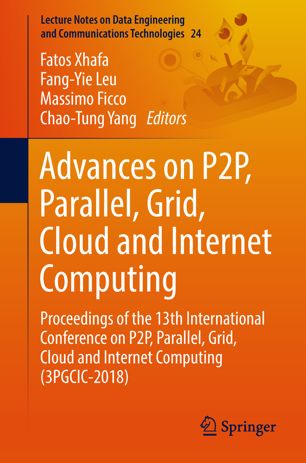

Most ebook files are in PDF format, so you can easily read them using various software such as Foxit Reader or directly on the Google Chrome browser.
Some ebook files are released by publishers in other formats such as .awz, .mobi, .epub, .fb2, etc. You may need to install specific software to read these formats on mobile/PC, such as Calibre.
Please read the tutorial at this link: https://ebookbell.com/faq
We offer FREE conversion to the popular formats you request; however, this may take some time. Therefore, right after payment, please email us, and we will try to provide the service as quickly as possible.
For some exceptional file formats or broken links (if any), please refrain from opening any disputes. Instead, email us first, and we will try to assist within a maximum of 6 hours.
EbookBell Team

5.0
100 reviewsThis book presents the latest research findings, as well as innovative theoretical and practical research results, methods and development techniques related to P2P, grid, cloud and Internet computing. It also reveals the synergies among such large scale computing paradigms.
P2P, Grid, Cloud and Internet computing technologies have rapidly become established as breakthrough paradigms for solving complex problems by enabling aggregation and sharing of an increasing variety of distributed computational resources on a large scale.
Grid computing originated as a paradigm for high-performance computing, offering an alternative to expensive supercomputers through different forms of large-scale distributed computing. P2P computing emerged as a new paradigm following on from client-server and web-based computing and has proved useful in the development of social networking, B2B (Business to Business), B2C (Business to Consumer), B2G (Business to Government), and B2E (Business to Employee). Cloud computing has been described as a “computing paradigm where the boundaries of computing are determined by economic rationale rather than technical limits”. Cloud computing has fast become the computing paradigm with applicability and adoption in all domains and providing utility computing at large scale. Lastly, Internet computing is the basis of any large-scale distributed computing paradigm; it has very quickly developed into a vast and flourishing field with enormous impact on today’s information societies and serving as a universal platform comprising a large variety of computing forms such as grid, P2P, cloud and mobile computing.